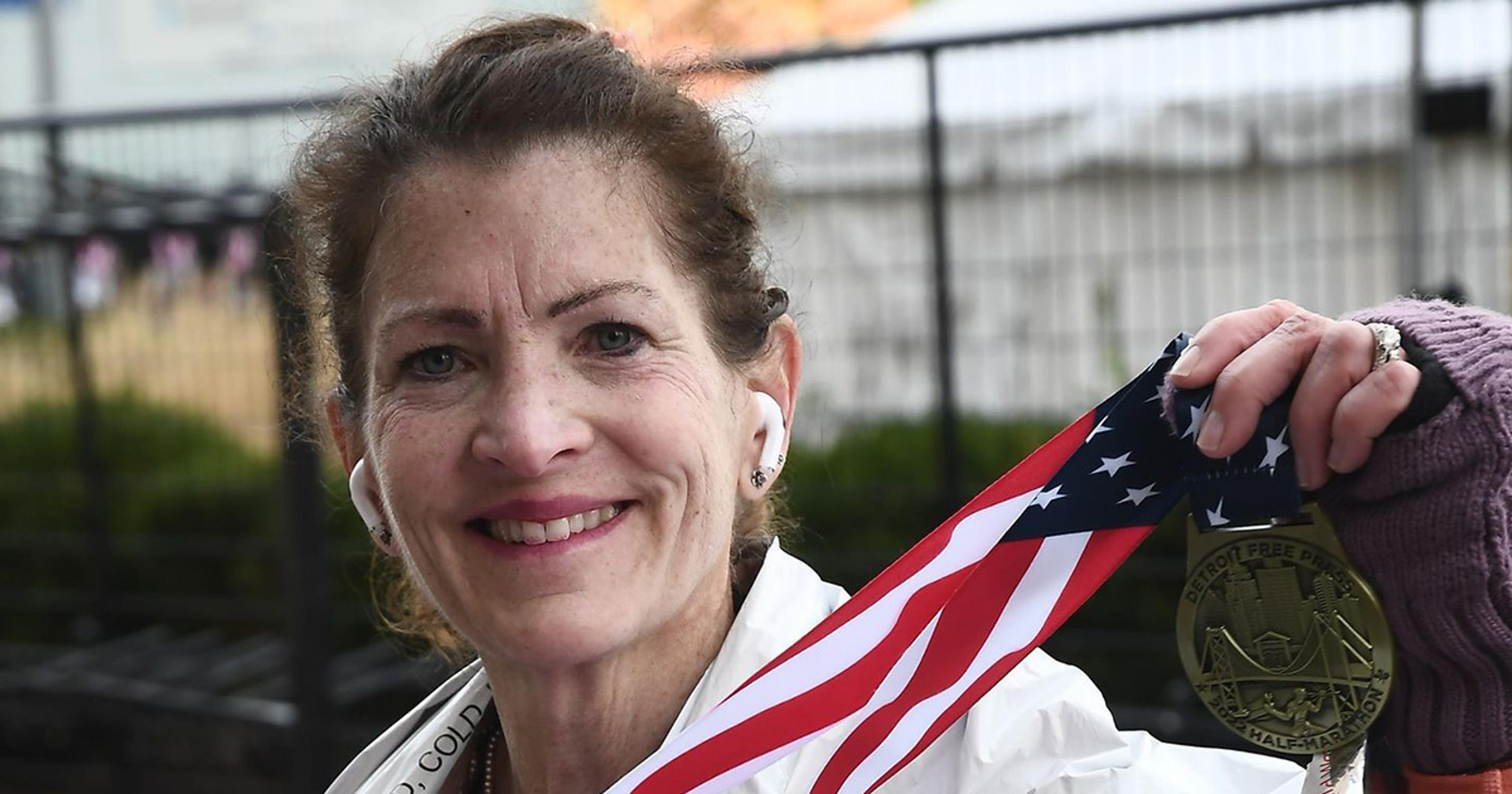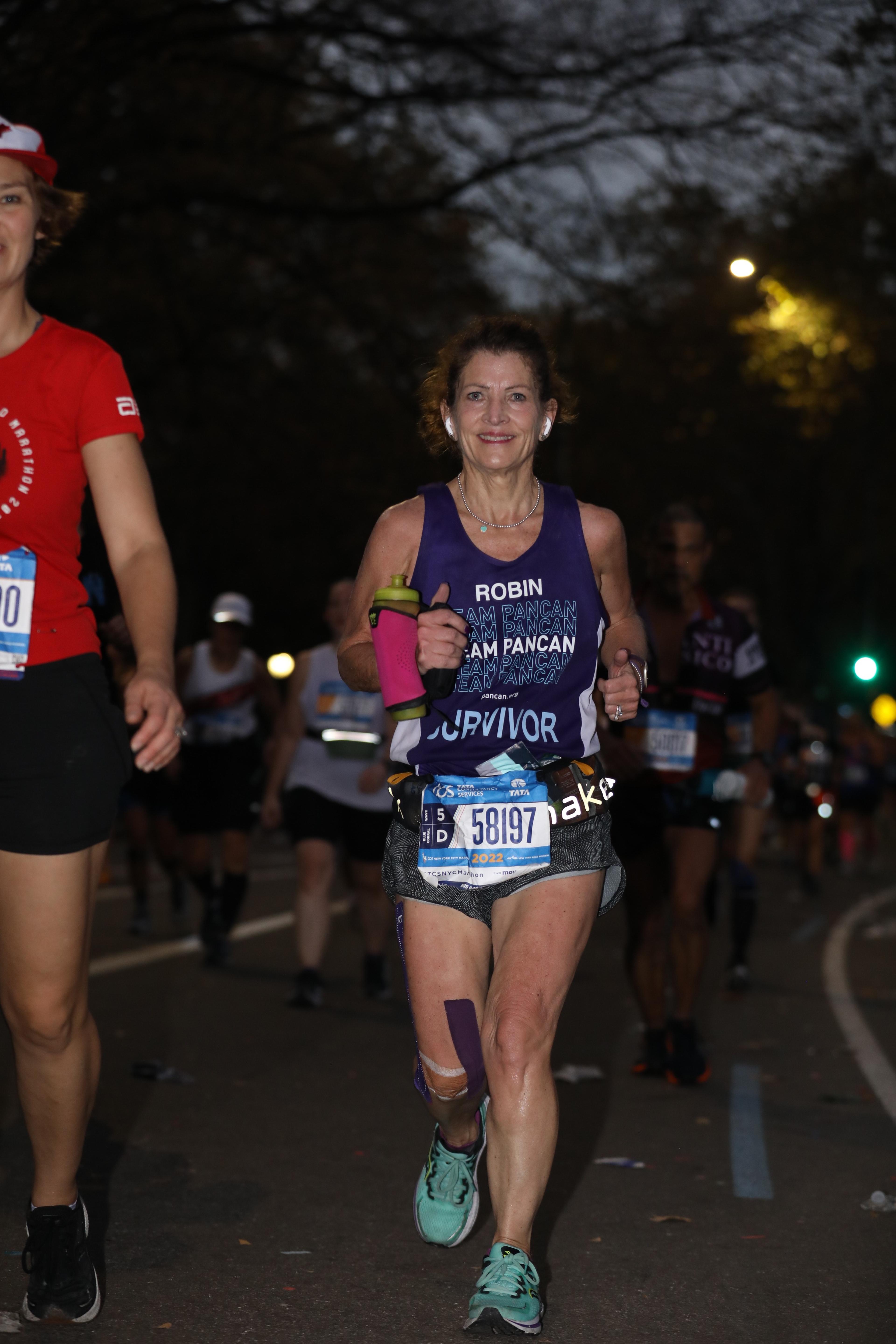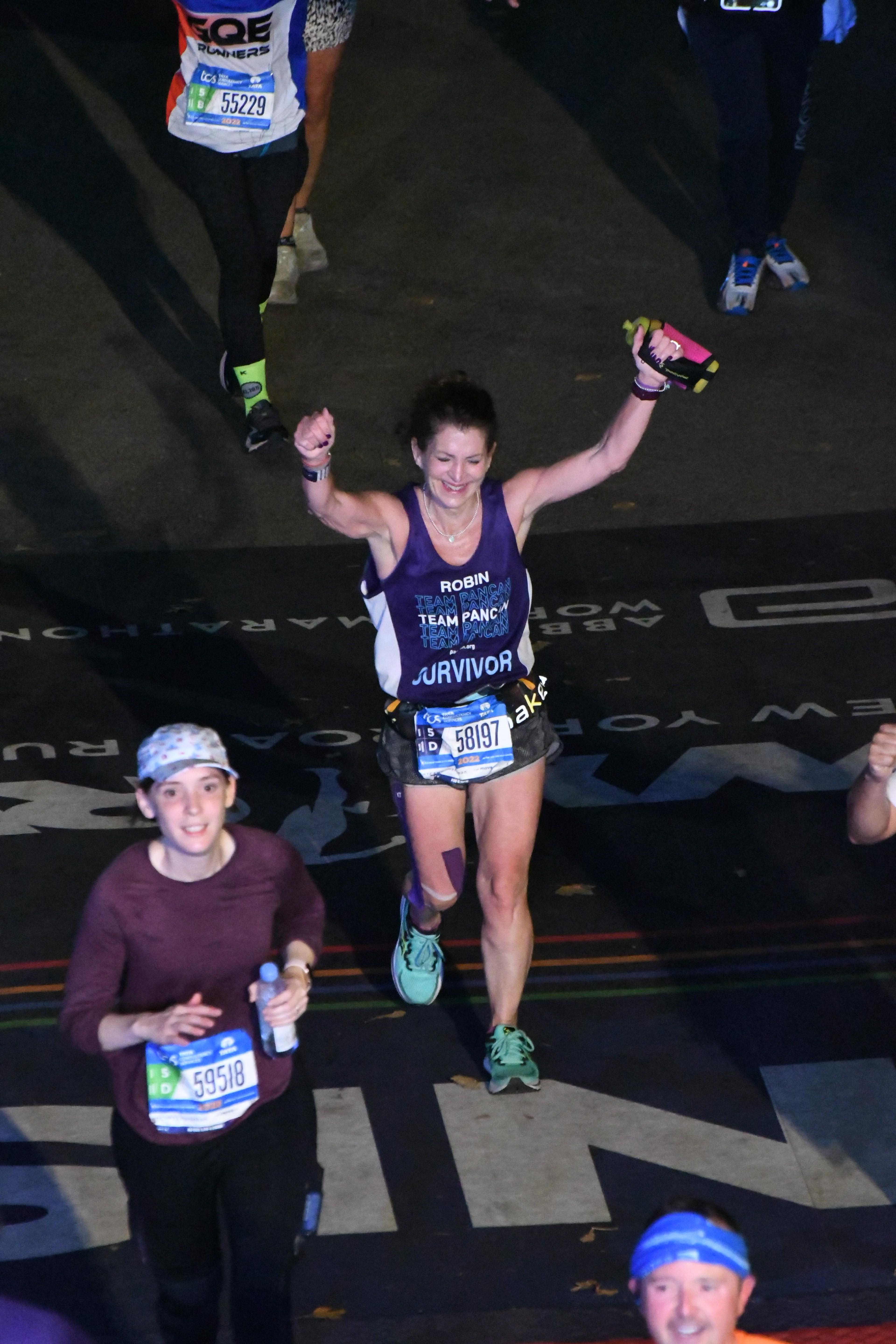Michigan Woman Credits Running for Helping her Beat Pancreatic Cancer

Jake Newby
| 5 min read
Jake Newby is a brand journalist for Blue Cross Blue Shield of Michigan.

Without a lifelong penchant for running and fitness, it’s tough to project how Robin Schroeder would have fared in her fight against pancreatic cancer. She’d probably still be here today, but it’s highly unlikely she’d be as physically fit and mentally sharp. And there’s almost no chance she’d be running multiple marathons a year like she’s doing now.
Within three months of remission from stage three pancreatic cancer in 2020, the Petersburg, Michigan resident was walking three miles a day. For someone who was always careful about what she put into her body – she had to leave her son hanging when he proposed shots of hard liquor together on his 21st birthday – Schroeder’s cancer diagnosis left her scratching her head. After undergoing a Whipple procedure to remove three tumors in her pancreas in the spring of 2020, Schroeder recovered smoother than expected. She credits all those years of eating right and exercising.

“I’m a pretty healthy person, but I had a hysterectomy, I had a C-section, I had a ruptured appendix, and Whipple by far was my best recovery,” said the 56-year-old Schroeder, during an interview with Blue Cross Blue Shield of Michigan. “And I attribute that to my physical activity. Not only before – because I was walking before (Whipple) – but after the surgery. I just kept moving. And I noticed that every day I moved, I got a little better.”
Whipple is one of the most complex surgical operations to perform. It’s a procedure that involves the removal and reconstruction of a large part of the gastrointestinal tract. Prior to her May 2020 surgery, Schroeder learned that cancer cells had been in her body for years.
“How I knew I had pancreatic cancer”
“They felt that my pancreatic duct was blocked, and all of the pancreatic enzymes that are used to digest food, and that get excreted from your pancreas, were actually being blocked,” Schroeder said. “And it atrophied my pancreas.”
Digestive distress for most of her adult life was the primary, recurring symptom Schroeder could point to as a possible precursor for her pancreas issues. Even as far back as her early 20s, she recalls having explosive diarrhea relatively often. In 2019, Schroeder had a bout of diverticulitis. Later that same year, troubling CT scans made her primary care physician hypothesize that she had abused her body for years. More head-scratching for Schroeder.
“I was kind of stunned, because he knows I’m a marathon runner, I do yoga, I eat healthy,” Schroeder went on. “I drank like a beer here and there. Never hard alcohol, never excessive. So, I started taking on the guilt, of, ‘How could I do this?’”

Schroeder took her scans to the University of Michigan for further evaluation. Though original scans with her PCP revealed no lesions or tumors, in March 2020, her eeriest suspicions were confirmed when U-M doctors diagnosed her with pancreatic cancer. Soon after the diagnosis, Schroeder agreed to Whipple surgery.
She estimates losing 30% of her body weight that spring, but that wasn’t going to deter her from getting up and moving around. Beyond just the physical, literal act of walking, and eventually running, Schroeder applied the disciplinary mindset one needs to be a successful marathon runner to her recovery. Her resilience and mental fortitude enabled Schroeder to dash past one of the darkest, dreariest times of her life.
“Your mind has to be in a place to be able to push,” she said. “Whipple is not a sprint. It’s an endurance race. When I’m running, I go to places I can’t explain. And that’s where I was during Whipple. When I was recovering during the hospital, I took books, I took tablets to do activities. I never watched TV. That was my push. That was my race, that was my run. And I was able to get to that place, because that’s what my training has always done for me.”
Running the New York City Marathon and reflecting on her journey
A little more than two years after being deemed cancer-free, Schroeder, who is a Pancreatic Cancer Action Network (PanCAN) member, ran the New York City Marathon. PanCAN served as an official charity partner with the race and Schroeder was one of nine team members to compete. The team raised $25,000 of funds, all of which was used by PanCAN to provide pancreatic cancer patients with free, personalized information, services and resources that make a real difference in their lives.
Schroeder wanted to be in tip-top shape for the race, so she hired a personal trainer in the lead-up to the event, which her husband and her mother flew out for. Their attendance made for an extremely emotional day in October 2022.

“I expected to see them at the finish line, but they came across at mile 17, and my mom was crying,” Schroeder said. “On the Verrazzano-Narrows Bridge in Staten Island, I couldn’t stop smiling. I remember it being such an exhilarating feeling. When I saw my mom and my husband, I was so grateful that they were there. When I came across the finish line it was fantastic. It really was the coolest experience.”
Even before linking with PanCAN, Schroeder knew half a dozen people affected by pancreatic cancer, a disease that has a grim five-year survival rate of just 12%.Her advice for others who may be unfortunately touched by the disease is to get tested and get to the bottom of the issue, because getting tested is easier than getting treated or going under the knife.
“If you do have a symptom, take it seriously,” Schroeder said. “Don’t be in fear of the diagnosis. I always say, you have to mourn the diagnosis, but you can’t live there. You take it in, you swallow it and you come out fighting ... I’ve had most of my insides taken out and rearranged. With any type of cancer, that treatment and the recovery is harder than any diagnostic test out there. The earlier you get your testing, the better chance you have of survival.”
Photo credit: Robin Schroeder
Read about more resilient Michiganders:





